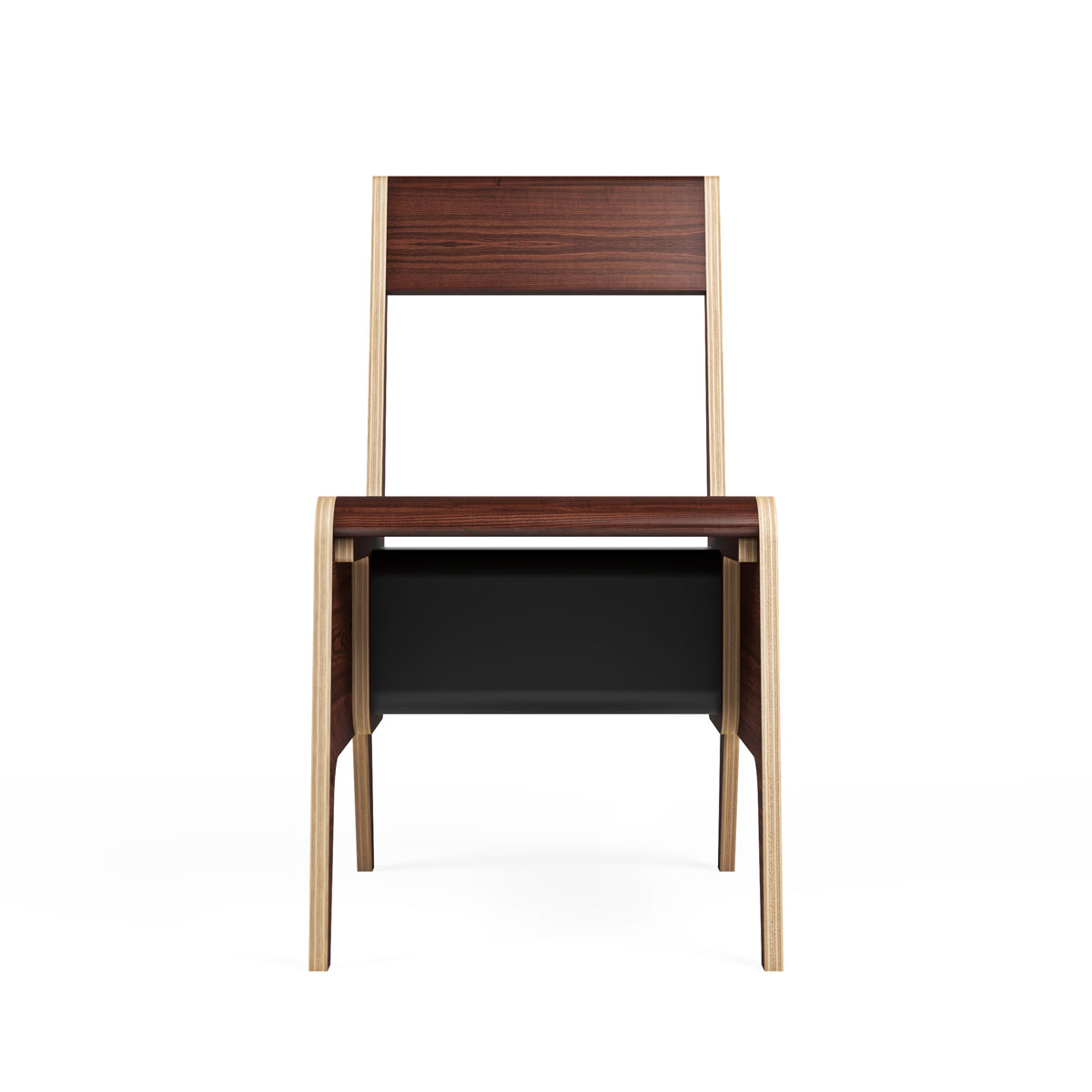
Comfort, Aesthetic Value, and Utility
Most people can probably relate to the following experience:
You arrive at your seat in a popular and crowded restaurant or pub. Once seated, you have no place to store your personal items and therefore you either leave those items on the tabletop during the dining experience, place them on the floor under your seat, or hold everything uncomfortably in your pockets or in your lap. If everyone in your party stores their items on the table top, the area needed for plates and glassware immediately becomes cramped and crowded.
The Gömma chair design solves this problem by offering a safe and convenient location to store your items while socializing and dining with friends and family.
The Gömma chair design allows users to easily store personal items such as wallets, keys, sunglasses, a small purse, and cell phones.

Necessity is the mother of invention.
– Proverb attributed to Plato
Hi! I’m Leo, creator of the Gömma chair design (pronounced yuh-mah).
Long before I founded a popular Denver-based retail wine boutique, I had spent several years working in the hospitality and tourism sector. Having spent my formative years in the restaurant business, I developed a great appreciation for how vital it is to maximize space in order to run an efficient and profitable establishment. Restaurant kitchens are notoriously tight and cramped and dining rooms may not be as spacious as some would prefer. Therefore, restaurant operators are constantly challenged to maximize whatever space may be available to create an enjoyable and comfortable guest experience.
My travels led me to the gorgeous city of Amsterdam in The Netherlands to pursue a graduate degree in International Relations. It was there in that tightly-packed, coastal northern European city where I truly began to appreciate the pressing need for space and space-saving tools. Apartments, pubs, and restaurants always seemed just a little too crowded and cramped.
The Dutch have a word for creatively cultivating usable space – Polder. Polder is a term used to describe any piece of land that has been reclaimed from the sea. Throughout their entire history, The Dutch have faced the unique challenge of living on a small piece of territory located below sea level which is highly susceptible to flooding. Over the centuries, the Dutch have successfully expanded the territory of their tiny coastal nation by walling off small sections of the sea and filling the areas with earth, creating artificial islands – thus reclaiming much-needed land from the sea. Entire regions of the country have been created using the Polder approach.
The concept of cultivating useful space from unsuspecting areas is the impetus behind the Gömma chair design.
The Gömma chair is designed for those public areas where space is at a premium.
The initial concept for the Gömma (pronounced yuh-mah) chair design was conceived at a happy hour dining experience in Denver, Colorado in the Summer of 2021. My wife and I had joined another couple at a popular eatery in northwest Denver for drinks and boisterous conversation on a sunny Saturday afternoon. We were seated together at a hi-top bar table and soon placed all of our devices and personal items on the already cramped and crowded tabletop, leaving little room for plates and glassware. My wife was carrying a beautiful, brand-new suede clutch purse and proceeded to place it directly onto the floor under her chair as there was no other place to store it. I gasped in disbelief. “There must be a better way” I thought. The Gömma chair was born.
The Gömma chair is designed with comfort, aesthetic value, and utility at the top of mind. The chair enhances social experiences by offering users a discreet and convenient space to host small personal items. The chair design allows users to store items such as wallets, keys, small purses, and cell phones, keeping precious table space free from those items and thus available for more plates and glassware.
Nestled directly underneath the seat of the chair is a discrete stowaway compartment used to hold small personal items during dining experiences, office meetings, performances, and other social settings. Users can fully enjoy their social experience while unencumbered by their personal items, with easy and convenient access to them at any time.

